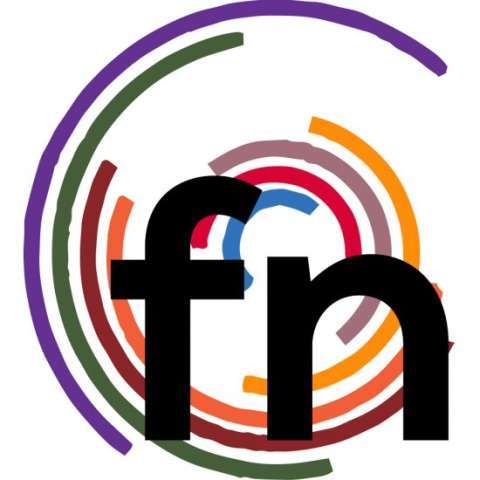Buying & Booking Talent
Tracy Childers, Ford Entertainment Let's take it from the top.
Let's take it from the top.
Before we get any further down the road let me use the term "middle agent." Who in the world is this guy or girl and why do I need this person? First of all, I don't know that you do. The choice is certainly up to the decision maker. Those of us who have had to make a living out here seek to serve and I hope honestly represent the best interest of the decision maker, as we affectionately refer to as buyer. After all it's your money we are striving to get the best value for. Here are some caught thoughts for your consideration, and some things I have learned in my tenure as buying talent and servicing shows on behalf several different events. If you are comfortable with what show to buy and where to get it and confident of the cost... go for it. If not, consult a talent buyer, yes, middle agent; after all, it's what we do. We are plugged into the necessary sources and can get there very quick with the pertinent information.
Read more here!



 One of the most difficult challenges that new food concession operators face is how to find venues such as fairs, festivals, and other events and then how to convince the management of those venues that it is their best interests to have them attend.
One of the most difficult challenges that new food concession operators face is how to find venues such as fairs, festivals, and other events and then how to convince the management of those venues that it is their best interests to have them attend. If you're using Facebook to market your event there are a few important things to understand. First off - like any marketing or advertising medium, Facebook has both positives and negatives. Disclaimer: I'm NOT on the crazy train that thinks Facebook can instantly fix every event marketing challenge. But, I do firmly believe Facebook is here to stay. Thus, event organizers should understand how to use it to their advantage.
If you're using Facebook to market your event there are a few important things to understand. First off - like any marketing or advertising medium, Facebook has both positives and negatives. Disclaimer: I'm NOT on the crazy train that thinks Facebook can instantly fix every event marketing challenge. But, I do firmly believe Facebook is here to stay. Thus, event organizers should understand how to use it to their advantage. Many people in the mobile food concession business consider November through March the off-season. During the cold and wet winter months a food concession operator, whose income is earned by operating at outdoor events such as fairs and festivals, might put his or her food booth in mothballs and take a much-needed break from the business. For several months these lucky concessionaires take time off and enjoy the pursuit of other activities. Not until early spring do they start looking forward with enthusiasm to prepare their equipment and schedule events for the upcoming food concession season.
Many people in the mobile food concession business consider November through March the off-season. During the cold and wet winter months a food concession operator, whose income is earned by operating at outdoor events such as fairs and festivals, might put his or her food booth in mothballs and take a much-needed break from the business. For several months these lucky concessionaires take time off and enjoy the pursuit of other activities. Not until early spring do they start looking forward with enthusiasm to prepare their equipment and schedule events for the upcoming food concession season.
 Community events such as art shows, craft fairs, and others offer opportunities for professional artisans to promote their business. As insurance experts who work with artists and crafters, we understand how important these events are, but we can also foresee the problems an artist or crafter might run into if they do not have appropriate liability insurance.
Community events such as art shows, craft fairs, and others offer opportunities for professional artisans to promote their business. As insurance experts who work with artists and crafters, we understand how important these events are, but we can also foresee the problems an artist or crafter might run into if they do not have appropriate liability insurance.


 When Terry Speer was a struggling art student in the 60s, he put himself through college by selling his prints and paintings at local art shows. In 1979, after eight years as an art professor, Speer left academia to do the show circuit full time with his wife, Deborah Banyas, a fellow artist and quilt maker.
When Terry Speer was a struggling art student in the 60s, he put himself through college by selling his prints and paintings at local art shows. In 1979, after eight years as an art professor, Speer left academia to do the show circuit full time with his wife, Deborah Banyas, a fellow artist and quilt maker.

 You know how important a press release is to get the word out about whatever your band or label has going on, be it a new album, a tour, or some other piece of news. But sending that press release a the right time is another key piece of the puzzle to getting media coverage. How do you get the timing right?
You know how important a press release is to get the word out about whatever your band or label has going on, be it a new album, a tour, or some other piece of news. But sending that press release a the right time is another key piece of the puzzle to getting media coverage. How do you get the timing right?





 Historic Hendersonville, NC is the official home of the annual North Carolina Apple Festival, a four-day celebration of the bountiful Henderson County apple harvest. The festival is held annually over Labor Day weekend on Main Street, culminating with the King Apple Parade on Labor Day. The street fair, which covers 9 linear blocks, is capped at 150 vendors to manage crowds and preserve the attendee experience.
Historic Hendersonville, NC is the official home of the annual North Carolina Apple Festival, a four-day celebration of the bountiful Henderson County apple harvest. The festival is held annually over Labor Day weekend on Main Street, culminating with the King Apple Parade on Labor Day. The street fair, which covers 9 linear blocks, is capped at 150 vendors to manage crowds and preserve the attendee experience.